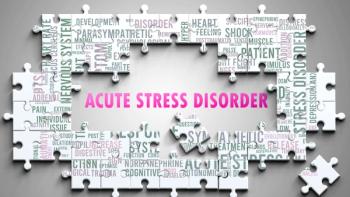
PTSD in Female Firefighters Is Associated With Lower Levels of a Hormone Related to Reproductive Health, Study finds
Researchers sought to determine whether mental health conditions affected women firefighters’ reproductive outcomes. They found a possible link between post-traumatic stress disorder (PTSD) and an indicator of reduced fertility.
Compared to the general population, female firefighters have a higher risk of miscarriage, premature delivery, and lower levels of
Firefighters also are more likely to experience symptoms of depression and PTSD, and rates of PTSD among female firefighters are two-thirds higher than their male counterparts.
Researchers wanted to know if depression, anxiety and PTSD are associated with lower levels of AMH.
They used data from a subgroup of the national Fire FighterCancer Cohort Study known as the Women FirefighterStudy, which aims to identify causes of stress, cancer and adverse reproductive health effects in women firefighters that would inform effective interventions to mitigate these conditions.
First author Michelle Valenti, M.P.H., a doctoral student at the University of Arizona Mel and Enid Zuckerman College of Public Health and program coordinator of the Women Firefighter Study, and 16 co-authors, mainly from the College of Public Health and several fire and rescue organizations, enrolled a total of 372 participants. After exclusions for various reasons, the main sample consisted of 250 women ages 18 to 45, although most of the full group was used for multiple sensitivity analyses.
The
After adjusting for age and body mass Index, female firefighters who reported a clinical diagnosis of anxiety had a statistically significant 33% lower level of AMH than those without the condition. Those with PTSD had an average 66% lower level of AMH. When women with concurrent PTSD and anxiety diagnoses were removed from the analysis, however, the association between anxiety and AMH levels was no longer statistically significant.
Women with self-reported depression also had lower levels of AMH, but that difference also was not statistically significant except among women who reported one or more pregnancies. All the associations were more pronounced among firefighters ages 35 to 45 compared with the younger firefighters.
"Due to the high correlation between age and years in the fire service, as women get older, they will have higher levels of environmental/occupational exposures that may impact ovarian reserve," Valenti and her co-authors wrote.
The study is cross sectional, so cause and effect cannot be inferred. The researchers noted that chronic inflammation could be a potential mechanism. A meta-analysis has associated anxiety and PTSD with chronic inflammation, which has also been associated with lower levels of AMH, they noted.
Newsletter
Get the latest industry news, event updates, and more from Managed healthcare Executive.























